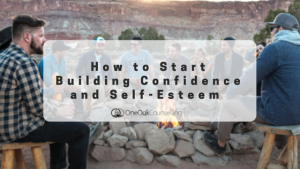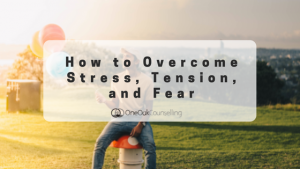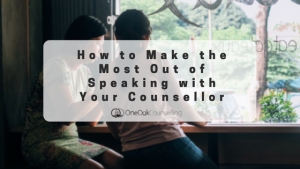You wake up 30 minutes before you start work. You’re panicking because you slept through your alarm, but that isn’t what’s really worrying you.
You’ve been invited to present your ideas to your colleagues. You’ve been told to speak up. The last time you spoke to a group of people, you fumbled over your own words.
The stress begins to creep up and you wonder why you’re so nervous all of a sudden. What if there’s something in my teeth? What if they think I’m weird? What if I trip? What if they don’t like my ideas?
You’ve expressed how stressed out you feel. The most common response you get is an easygoing “Don’t worry about it.”
Such an easy phrase to say, but how? Here goes another day filled with anxiety.
Reducing your anxiety isn’t an easy process. It’s pretty much human nature to want to predict what will happen in the future. If you feel that you’re experiencing a little bit of daily anxiety, these 3 activities may help.
Disclaimer: If you feel that you are dealing with an anxiety disorder, please talk to a medical professional or clinical counsellor about your options for managing anxiety.
EXERCISE CONSISTENTLY
You’ve heard it before, exercise and you’ll feel much better. There’s a reason why many professionals recommend exercise to help manage your stress. Exercise is by far the easiest and most cost-effective way for you to manage your stress. It simply works, and there’s plenty of research to back it up.
Research has shown that exercise reduces cortisol and adrenaline, which are the hormones responsible for your stress levels. Being active also produces endorphins, which are your body’s natural painkillers and mood elevators.
The downside is it may be difficult to get into at first. It might even take longer than expected for you to feel the positive effects of exercise. Because of this, you might have felt that exercise does not work for you. The key is to continue doing it on a daily basis to get the payoff you need.
You’re probably thinking: “that’s a lot of exercise!”
You don’t necessarily have to get into an intense regimen. You can start with a brisk 10 – 15-minute walk first thing in the morning. You could even eventually work your way up to a daily morning jog. Set daily goals you can achieve to keep yourself motivated. For example, you can aim to walk 10 blocks in 10 minutes. You can then work your way up to walking 12 blocks in 12 minutes.
You can also try getting someone else involved for extra accountability. Having a companion tag along will help you stay on track. You’ll have someone to talk to, and you’ll also be held responsible for your daily routine. If you’re comfortable, you can also share your goals and motives for exercising.
Try your best to exercise in the morning; it can help you feel fired up from accomplishing something early – set a fresh tone for your day!
EAT NUTRITIOUS MEALS
Being stressed out can lead to cravings; we’ve all divulged in a couple slices of cake when things got a little tough.
Your appetite can also fluctuate due to stress. You might find yourself pigging out at lunch, but eating practically nothing for dinner. Being anxious encourages your body to take on a stress response. During this stress response, your body stops breaking down food.
Your lack of appetite will subside, and during this time you may feel the need to binge. Try to eat healthy and nutritious meals when you do have an appetite.
How can eating healthy reduce anxiety symptoms?
Well, proper nutrition will be something you should consider on your road to recovery. Vitamin B is often associated with positive mental health. Food with omega-3s and omega-6s have been found to help with reducing the symptoms of both anxiety and depression. Whole grain carbohydrates were also found to regulate your serotonin levels, which are the neurotransmitters responsible for keeping you in a good mood.
If you’ve already started exercising consistently, you can then try adopting healthy eating habits.
THINK IN THE PRESENT
As humans, we’re always asking ourselves:
“What if?”
We begin to analyze all the future possibilities, which can put us in a stressed-out state of mind.
It can be easy to think about the future and start worrying about what might happen. Worrying about what could happen is normal. In fact, everyone gets worried about what might happen after they take a certain action.
You’re not the only person that worries about speaking in front of others, or taking that next big step in your career. When you feel the anxiety and stress start to set in, pull yourself back. Pay attention to where you are, and try to be mindful of your current surroundings.
Consider the actual chances that something bad could happen. Take a few deep breaths and get into a meditative state. You’ll feel a lot more mindful and more open to the positive things that could happen.
Thinking about the present instead of the future will help reduce the anxiety and stress you’re feeling.
Avoid asking yourself “what if?” and try thinking more about the present. Sentences that start with “what if” are by their very nature unknown, designed to make us feel bad and come sometimes even be statements in disguise.
CONCLUSION
Even after implementing these 3 activities, it may still take more time to overcome stress anxiety. It’s going to take a lot of patience and motivation, but you will eventually heal. You might even benefit from seeking professional assistance If you feel that you’ve been constantly fighting anxiety.
If you feel that this article helped you take a step closer to healing, spread the word and share this article with others.





